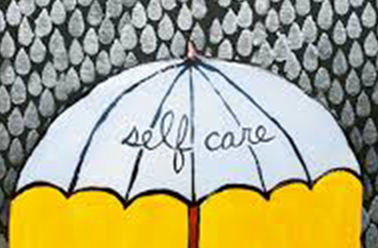Self-Care
Last week, the NHS had their annual Self-Care Week, dedicated to what we can do to look after ourselves. Self-care can sometimes feel difficult and hard to put into practice. Whatever self-care looks like to you, it should be something we can do all year round without guilt or shame. In times that feel particularly overwhelming, prioritising our self-care can help us to refocus on what we need. It’s also always important to hold that whatever we need is totally okay. In that spirit, we asked some women and non-binary people in our lives what self-care means to them. Here are some of their answers:
- It is okay to say no. It is okay to cancel plans. It is okay to take a day or a night off. Know your own capacity and your limits. You are entitled to them.
- Acknowledging the ‘small things’ that are actually huge: from getting up in the morning, keeping hydrated and remembering to breathe to getting sleep, taking medication and having a shower. These things might feel ‘boring’ or basic, but they’re a big deal. You’re doing it!
- Listen to yourself about what you need and deserve. It can be really hard but, if you feel able, ask for help if you need it. Remember that you are always deserving of support.
- Holding onto positive things where you can. At the end of your day, think about any nice things that happened that day if you need to – however small they may seem.
- Switch off, whatever that means to you. Sometimes switching off can feel impossible. It can be helpful to think of it in a different way – as extending the care and commitment we might have for other people / things / causes and applying them to ourselves. If you need a break from social media, take the time you need. People relax in different ways – it might be a bath, reading a book, playing a sport, watching TV, going for a short walk, or writing down what’s going on for you that day. There is no right or wrong way.
- Remember that you matter. Carve out time just for you, whether it’s a few minutes where you can or a full day. If you’re struggling with your feelings towards yourself, think of things you are good at or that you like about yourself. If you can’t think of anything and there are people in your life you feel safe and comfortable to ask, ask them.
- Reframe shaming language that can be unhelpful. Self-care is not being lazy, selfish or self-indulgent. Self-care can be nourishing, radical, energising, and necessary.
We all have different interactions with the world depending on who we are, and our access to what’s readily available to us can affect our relationship with our own self-care. Our strategies may shift, change and evolve, and sometimes we might need to reconfigure what we need depending on what is happening around us. Finding what feels accessible and doable can be hard, but ultimately worthwhile. What works and what doesn’t is personal and unique, just like you. You are enough, and you deserve looking after.

There’s more on self-care here:
This article on the history of self-care charts its roots through society, led by communities of women, people of colour and the LGBTQIA* community: https://www.slate.com/articles/arts/culturebox/2017/04/the_history_of_self_care.html?utm_content=buffer46e8a&utm_medium=social&utm_source=twitter.com&utm_campaign=buffer
On boundaries: https://thedebrief.co.uk/news/opinion/practice-self-care/
On ‘boring’ self-care and art affirmations: https://www.refinery29.com/2017/05/153951/boring-self-care-instagram
